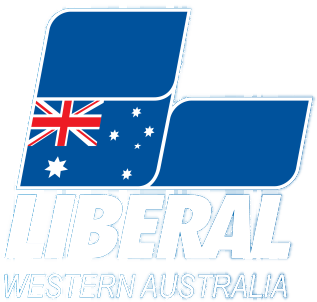There is a great fear among the Australian Jewish community that, not for the first time in history, they stand at the edge of a precipice.
On one side, the security of tolerance and an understanding of the evil of anti-Semitism, and on the other, the dangerous abyss of ignorance and racial hatred.
For weeks, Australian universities have been overrun by anti-Israel encampments, where chants of “intifada” and “from the river to the sea” have transformed places of learning into centres of fear.
Anti-Semitism is on the march in Australian cities, whether it be anti-Semitic chants on the steps of the Sydney Opera House in October or the alleged targeting of an 84-year-old Jewish woman in Melbourne, who said she was poked and called a “Zionist pig” at a recent Never Again is Now event.
It remains one of the most perplexing and disturbing consequences of the October 7 attack that the greatest loss of Jewish life since the Holocaust has led not to an outbreak of sympathy for the victims but the opposite.
In these dark times, Jewish Australians are taking measures they had never dreamt would be necessary in this country.
Jewish students are not attending lectures, Jewish schools are hiring extra security, and Jewish parents are having conversations with their children about what to do if they are abused or even assaulted.
The words of the great-grandmother harassed in Melbourne, who said she “can’t believe this is the Australia I grew up in,” captures the distress felt across her community, and in particular those who lived through the Holocaust.
Adding to this distress is a sense of confusion: why is it acceptable to treat Jewish Australians in a way that would be unacceptable if it were any other minority group?
This confusion was articulated by the president of the Perth Hebrew Congregation, Michael Levitt, in this newspaper.
“We all know that similar public displays of hatred directed at Indigenous Australians, people of colour more broadly, homosexuals, Muslims, transgender people, foreign students — almost any subset of Australian society other than Jews, whether on our streets or on campuses — would be condemned and closed down speedily, and with firm intent,” he wrote.
When any community in our country feels under threat, they should be able to look to their political leaders for moral clarity and guidance.
Worryingly, Australia’s Jewish community felt abandoned by Labor at the time their public support should have been the Government’s first priority.
For evidence of this, we need only look at the events of the past week.
When the International Criminal Court sought the arrest warrant of Israeli Prime Minister Benjamin Netanyahu and Defence Minister Yoav Gallant, along with Hamas’ leadership, they were met with a clear rebuke by the political leadership of our closest allies.
US President Joe Biden labelled the ICC’s decision as “outrageous” and confirmed his view that there is “no equivalence — none — between Israel and Hamas.”
UK Prime Minister Rishi Sunak said: “There is no moral equivalence between a democratic state exercising its lawful right to self-defence and the terrorist group Hamas”.
Opposition Peter Dutton described the decision as “repugnant” and an act of anti-Semitism.
The most Anthony Albanese could bring himself to say was that he didn’t comment on court proceedings — a weak response from a Prime Minister who, before the last election, promised that “Australia needs leaders who show up and then step up”.
Just this month, Labor Senator Fatima Payman accused Israel of genocide in the Senate and repeated the slogan “From the river to the sea, Palestine will be free”.
Anyone in possession of a map can see that the “liberation” of Palestine from the Jordan River to the Mediterranean Sea is itself an incitement to genocide, as it could only be brought about by the destruction of the state of Israel.
Clearly, Anthony Albanese doesn’t think it’s a problem if a member of his own political party thinks this is a desirable outcome, as he is yet even to reprimand Senator Payman.
Nor has he formally reprimanded Ged Kearney, a member of his own front bench, for publicly supporting Senator Payman.
In an attempt to break this cycle of fear, Peter Dutton and Liberal Senator for Victoria, Sarah Henderson, wrote to Mr Albanese seeking a judicial or Senate inquiry into antisemitism on campuses.
But Labor, it seems, is reluctant to support any inquiry focussed only on anti-Semitism.
Time and time again, at moments when the country needed moral leadership, Anthony Albanese has been sly and equivocating.
As a result, anti-Semitism has a foot in the door in Australia.
While Anthony Albanese continues to shy away from responsibility on this critical issue, which goes to the heart of Australia’s multicultural character, he could do worse than reflect on the words of Nobel Peace Prize winner and Holocaust survivor Elie Wiesel.
In his 1987 acceptance speech, Wiesel said: “We must always take sides. Neutrality helps the oppressor, never the victim. Silence encourages the tormentor, never the tormented.”
He went on to say: “Action is the only remedy to indifference: the most insidious danger of all.”
On behalf of the country, it’s time for Anthony Albanese to get off the fence.
